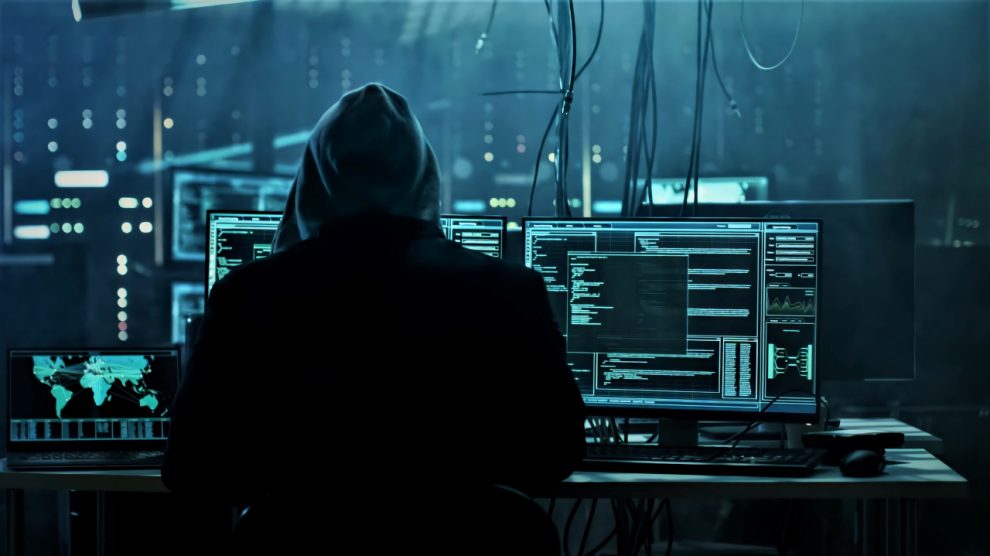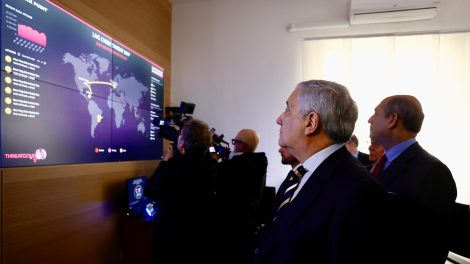Defence Minister Guido Crosetto has presented to Parliament a project that would establish a dedicated cyber arm staffed with up to 1,500 specialists and supported by a new information-warfare command.
The goal: The initiative aims to consolidate Italy’s fragmented cyber capabilities and strengthen national resilience against hybrid threats targeting critical infrastructure and national security.
Why he matters: Marco Braccioli is co-director of Cybersec at Fondazione Icsa and one of Italy’s foremost experts on cyber defence. With a long-standing background in national security and digital strategy, he has advised institutions and industry on cyber operations, technological sovereignty and hybrid warfare.
Q: How do you assess Minister Crosetto’s initiative to create a national cyber force?
A: This plan comes at a time when hybrid warfare has become permanent. The distinction between civilian and military targets no longer holds, because striking networks, infrastructure or services already constitutes a strategic hostile act.
- Technology is inherently dual-use, and conflict in the digital domain has become continuous and multidimensional. Global networks are fragmenting into blocs — Western, Russian, Chinese — and confrontation in cyberspace is inevitable.
- A dedicated and autonomous cyber force is therefore a necessary step. Today, the fragmentation across Defence, the National Cybersecurity Agency, Interior and Foreign Affairs makes rapid, coordinated responses difficult, while what we need is a single centre of command and reaction.
Q: One of the most challenging points is recruiting up to 1,500 specialists. How can such a structure realistically be built?
A: It is an ambitious goal, difficult to reach through traditional military recruitment. In the short term, Italy needs to start from the expertise already present within the Armed Forces and, in parallel, activate partnerships with major national players such as Leonardo and Fincantieri to fill essential operational functions immediately.
- At the same time, a continuous training pipeline must be created. Not everything depends on STEM degrees: some analytical roles can be filled by non-scientific profiles if properly trained.
- But a more structured vision is required. If Defence is to become a generator of skills, Italy should consider establishing a dedicated military academy for cybersecurity.
- There is no such institution today. An academy would train young people from the outset — as Modena does, but without a specific cyber focus — and build a vertical pathway to sustain a force of this scale, fully aware that many will stay five to eight years before moving to the private sector, where they will still contribute to national security.
Q: What role could a specialised military cyber academy play in strengthening national capacity?
A: It could become the core of Italy’s cyber capability. A specialised academy would allow the creation of a continuous cycle of formation: young recruits enter, train on operational issues, AI, data analysis, emerging technologies and incident response, then spend a few years in the cyber force and eventually bring this expertise into critical national infrastructures — energy, transport, networks.
- This is not a loss; it is a virtuous mechanism that strengthens the entire national system. Italy lacks a structured pathway of this kind, and filling this gap would be decisive to sustain a cyber force of 1,500 operators truly.
Q: The private sector, however, offers much higher salaries. How can the Defence Ministry manage this gap?
A: It cannot be eliminated — and it would be naïve to try. The most talented technicians will naturally move to the private sector after a few years in the Armed Forces. This can become an asset. What they learn in military structures eventually strengthens strategic national companies.
- The key is to create a continuous flow: recruits enter, others gain experience, others move on. The system must be designed for circulation, not retention at all costs.
Q: How does Italy’s initiative fit into the broader European landscape?
A: Europe needs critical mass in all advanced technological sectors: AI, quantum, cyber. No country can compete alone. Italy’s initiative must therefore integrate with EU and NATO programmes, where cooperation and funding tools already exist.
- A credible cyber force allows Italy to contribute, not only to benefit. It also reduces dependence on extra-European technologies, which directly affects digital sovereignty. Collaboration on research, products and training is essential. Intelligence is an individual sport; cyber is a team sport.
Q: Finally, what is the most strategic issue Italy must address in the cyber domain?
A: A central point is technological sovereignty. We can have excellent services and skilled personnel, but if our foundational technologies are foreign, our autonomy remains limited.
- The logic, updates and data handling of those systems are defined elsewhere. Italy needs to foster a domestic industrial chain capable of producing at least some of the fundamental building blocks of cybersecurity. Not everything — but what is strategic.
- Only by integrating national skills, education and technological products can Italy build a truly autonomous cyber capability. This, ultimately, is one of the most important steps to strengthen the national system.
The bottom line: Italy’s plan for a military cyber force marks a turning point in national defence. Still, its success will depend on three factors: the ability to recruit and train a new generation of cyber operators, the creation of a structured and continuous talent pipeline, and a strategic push toward technological sovereignty.
- As Marco Braccioli warns, cyberspace is now a domain of permanent conflict — and Italy must build the tools to defend itself accordingly.





